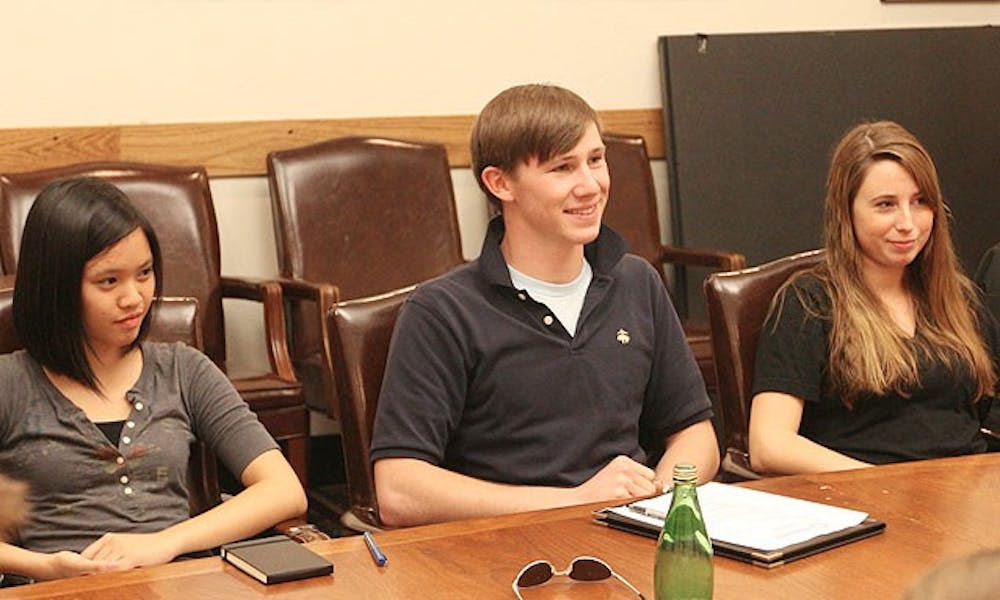Campus Council is searching for common ground on the common area issue.
At their meeting Thursday night, members discussed how to define common area ownership. Various students presented their perspectives, but they could only agree that they needed to reach a compromise.
“There is a venue for members of selective groups or Greek organizations to voice complaints, but there isn’t one for independents,” said President Stephen Temple, a junior. “So it is important for Campus Council to take that into account, and we did a good job of that today.”
Sophomore Bowen Niu, a representative of Keohane Quadrangle, said defining common space ownership is difficult because there is no real solution.
“There is no way to make everyone happy,” he said. “There just isn’t enough space.”
Members considered different common area scenarios, including the possibility of separating adjacent common rooms into unaffiliated and affiliated areas and determining how to assign a common room that is adjacent to two different groups.
“I think that common rooms that are in affiliated sections are used more often than common rooms in independent sections,” said senior Tracy Gold, a Mirecourt representative who was invited to participate in the discussion.
Gold said that although independents have equal opportunities to use common rooms, selective living groups or fraternities are likely to use them for organized, large-scale events.
She added that this situation may cause independents to feel uncomfortable.
“It becomes a hard situation because you don’t want to disenfranchise the independents,” she said.
But other members felt that no one person or organization uses common rooms more effectively.
“I think in the case where there is an independent on the border with a selective group, there is not a good case to be made for sole ownership by a selective group,” said senior Sean Puneky, Campus Council treasurer.
He added that it is difficult to judge the claim that selective groups make better use of common rooms.
“An independent has just as much right to study alone or watch TV in a room as a selective group has to have an event in a room,” Puneky said. “No one should have priority over another.”
Members also raised concerns about the voice of independents, which member Joshua Wohl, a senior, called the “silent majority.”
Some council members felt that this problem was a bigger campus culture issue tied to Greek life and selective living groups.
“As we’re looking at the shuffle, we need to look at having more groups that are not selective, whether they be random or assigned,” Gold said. “Having a sense of community is really important.”
Get The Chronicle straight to your inbox
Signup for our weekly newsletter. Cancel at any time.

